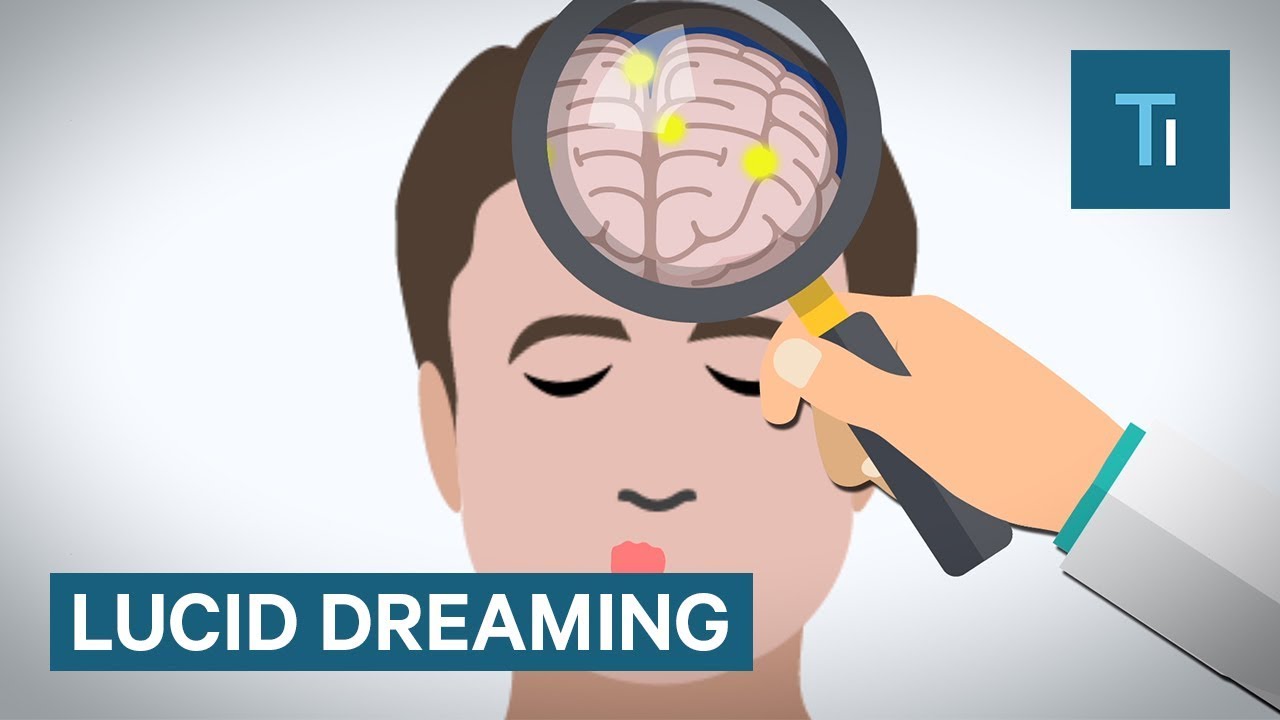The Neuroscience Of Lucid Dreaming
A lucid dream, as it is commonly known, is a type of dream where the dreamer becomes aware that they are dreaming and may be able to control the content of the dream. While this phenomenon has been known for centuries, it is only in recent years that scientists have begun to study the neuroscience behind lucid dreaming.
Author:Celeste PearlReviewer:Kelly HayesAug 01, 2022173 Shares2.3K Views

Have you ever had a dream where you realized you were dreaming? A lucid dream, as it is commonly known, is a type of dream where the dreamer becomes aware that they are dreaming and may be able to control the content of the dream. While this phenomenon has been known for centuries, it is only in recent years that scientists have begun to study the neuroscience behind lucid dreaming.
What Is Lucid Dreaming?
Lucid dreaming is a state of consciousness where the dreamer is aware that they are dreaming. In a lucid dream, the dreamer may be able to control the dream, alter the storyline, or even wake themselves up from the dream. Lucid dreaming is a rare occurrence and is estimated to occur in less than 20% of dreams.
The Science Of Lucid Dreaming
Lucid dreaming is a complex phenomenon that involves several areas of the brain. Scientists have identified specific brain areas that are active during lucid dreaming, such as the prefrontal cortex, which is responsible for executive functioning and decision-making, and the temporal lobes, which are associated with memory and sensory processing.
The prefrontal cortex is particularly active during lucid dreaming as it is responsible for self-awareness and self-reflection. This area of the brain is also responsible for cognitive functions such as problem-solving, decision-making, and planning. In lucid dreaming, the prefrontal cortex is thought to be responsible for the dreamer's ability to control the dream and make conscious decisions within the dream.
The temporal lobes are also active during lucid dreaming and are responsible for sensory processing and memory consolidation. During lucid dreaming, the temporal lobes may play a role in the dreamer's ability to access and manipulate memories within the dream.
The Role Of REM Sleep
Lucid dreaming is most commonly associated with REM (Rapid Eye Movement) sleep. REM sleepis a stage of sleep characterized by rapid eye movements, increased brain activity, and vivid dreaming. During REM sleep, the body is paralyzed to prevent the dreamer from acting out their dreams. The duration of REM sleep increases throughout the night, with the longest periods occurring in the early morning hours.
Scientists believe that the increased brain activity during REM sleep may be responsible for the vivid and immersive quality of dreams. This increased brain activity may also be responsible for the heightened self-awareness and control that occurs during lucid dreaming.
Techniques For Lucid Dreaming
While lucid dreaming is a rare occurrence, there are several techniques that can be used to increase the likelihood of having a lucid dream. These techniques include:
- Reality testing: This involves questioning whether you are dreaming throughout the day. This can help to increase self-awareness and may lead to lucid dreaming.
- Mnemonic induction of lucid dreams (MILD): This technique involves setting an intention to have a lucid dream before going to sleep. The dreamer may repeat a mantra or visualize having a lucid dream.
- Wake back to bed (WBTB): This technique involves waking up after a few hours of sleep, staying awake for a short period, and then going back to sleep. This can help to increase the likelihood of having a lucid dream during the REM sleep cycle.

How Lucid Dreaming Works
The Benefits Of Lucid Dreaming
Lucid dreaming has been associated with several potential benefits. These include:
- Increased creativity: Lucid dreaming may provide a space for creative problem-solving and idea generation.
- Reduced anxiety: Lucid dreaming may provide an opportunity to confront and overcome fears in a safe and controlled environment.
- Improved motor skills:The ability to control movement within a dream may translate to improved motor skills in waking life.
The Future Of Lucid Dreaming Research
As the field of neuroscience continues to advance, so does the research on lucid dreaming. Scientists are exploring new ways to understand the mechanisms behind lucid dreaming and how it can be used to improve cognitive function and well-being.
One area of research is focused on understanding how the brain creates and controls the content of dreams. Researchers are using brain imaging techniques, such as functional magnetic resonance imaging(fMRI) and electroencephalography (EEG), to study the brain activity during lucid dreaming. By understanding the brain activity that occurs during lucid dreaming, researchers hope to gain insight into how the brain creates and controls the content of dreams.
Another area of research is focused on the potential therapeutic benefits of lucid dreaming. Research has shown that lucid dreaming may be used to reduce anxiety and improve motor skills. Studies are also being conducted to explore how lucid dreaming may be used to treat conditions such as PTSD and depression.
Ethical Considerations
As research in the field of lucid dreaming continues to advance, ethical considerations must be taken into account. One concern is the potential for lucid dreaming to be used for unethical purposes, such as mind control or interrogation. To prevent such abuses, guidelines must be established to ensure that lucid dreaming research is conducted ethically and with respect for human rights.
Another ethical concern is the potential for lucid dreaming to cause harm. While lucid dreaming has been associated with several potential benefits, it is important to consider the potential risks. For example, lucid dreamingmay cause sleep disturbances or lead to confusion between dreams and reality. Researchers must take steps to minimize the potential risks of lucid dreaming and ensure that participants are fully informed of the potential risks before participating in research.
Practical Applications Of Lucid Dreaming
Lucid dreaming has practical applications beyond just understanding the brain and improving well-being. One area where lucid dreaming has potential is in skill acquisition. Research has shown that practicing a skill in a lucid dream can improve performance in waking life. For example, musicians have reported improved playing ability after practicing in a lucid dream.
Lucid dreaming may also have potential applications in virtual reality. By combining lucid dreaming with virtual reality technology, individuals may be able to have more immersive and controlled virtual experiences.
Lucid Dreaming Vs Vivid Dreaming
Lucid dreaming and vivid dreaming are two distinct experiences, although they can sometimes be confused with each other.
Vivid dreams are dreams that are particularly clear, intense, and detailed. These dreams can be very memorable and may involve strong emotions, colors, and sensations. Vivid dreams can occur spontaneously or may be induced by external factors such as stress, medication, or changes in sleep patterns. You can learn more inthis article from StationZilla.
Lucid dreams, on the other hand, are dreams in which the dreamer is aware that they are dreaming. This awareness allows the dreamer to actively participate in and even control the dream. Lucid dreams can be induced through various techniques such as reality testing, keeping a dream journal, and performing specific mental exercises before falling asleep.

What is Lucid Dreaming?
People Also Ask
What Triggers Lucid Dreams?
There is no definitive answer to what triggers lucid dreams. However, certain techniques can increase the likelihood of having a lucid dream. These techniques include keeping a dream journal, reality testing throughout the day by questioning whether you are dreaming, and performing mnemonic induction of lucid dreams (MILD) by repeating a phrase such as "I will have a lucid dream" before going to sleep.
Is It OK To Lucid Dreams?
Yes, lucid dreaming is generally considered safe and can even be beneficial for some individuals. However, it is important to note that lucid dreaming may cause sleep disturbances or lead to confusion between dreams and reality. Individuals should also be aware of the potential risks of lucid dreaming and take steps to minimize these risks.
Are Lucid Dreams Healthy?
Research on the health benefits of lucid dreaming is still in its early stages. However, some studies have suggested that lucid dreaming may have potential therapeutic benefits, such as reducing anxiety and improving motor skills. More research is needed to fully understand the potential health benefits of lucid dreaming.
Conclusion
Lucid dreaming is a fascinating phenomenon that has been the subject of research for several years. The neuroscience behind lucid dreaming has shed light on the brain activity that occurs during this unique state of consciousness. Understanding the brain regions that are active during lucid dreaming has provided insight into how the brain creates and manipulates our dreams.
While lucid dreaming is a rare occurrence, there are several techniques that can be used to increase the likelihood of having a lucid dream. These techniques can be simple and involve questioning whether you are dreaming throughout the day or more involved, such as the mnemonic induction of lucid dreams.
In addition to being a fascinating experience, lucid dreaming has been associated with several potential benefits, such as increased creativity and reduced anxiety. These benefits are still being explored by researchers, and more research is needed to fully understand the potential benefits of lucid dreaming.

Celeste Pearl
Author
Celeste Pearl is an accomplished writer and expert in numerology, astrology, and spirituality.
With a Bachelor of Arts in Journalism and over 6 years of writing experience, Celeste brings a wealth of expertise to her articles, making complex topics accessible and engaging for readers.
Her passion for metaphysical sciences is evident in her insightful content, where she explores the depths of these subjects with clarity and depth.
Beyond her professional pursuits, Celeste enjoys delving into spiritual practices and connecting with nature for inspiration.

Kelly Hayes
Reviewer
Kelly Hayes is a seasoned journalist with over 10 years of experience, specializing in news reporting and horoscope analysis. She holds a Bachelor's degree in Journalism from New York University, enhancing her credibility and expertise in the field.
Kelly's writing style is characterized by clarity, depth, and a commitment to delivering credible information. Her published works across various platforms showcase her knack for engaging storytelling and insightful analysis.
Readers trust Kelly's expertise in both current events and astrological interpretations, making her a sought-after authority in journalism.
Apart from her professional activities, Kelly enjoys exploring new cultures, practicing yoga, and engaging in philanthropic activities.
Latest Articles
Popular Articles
